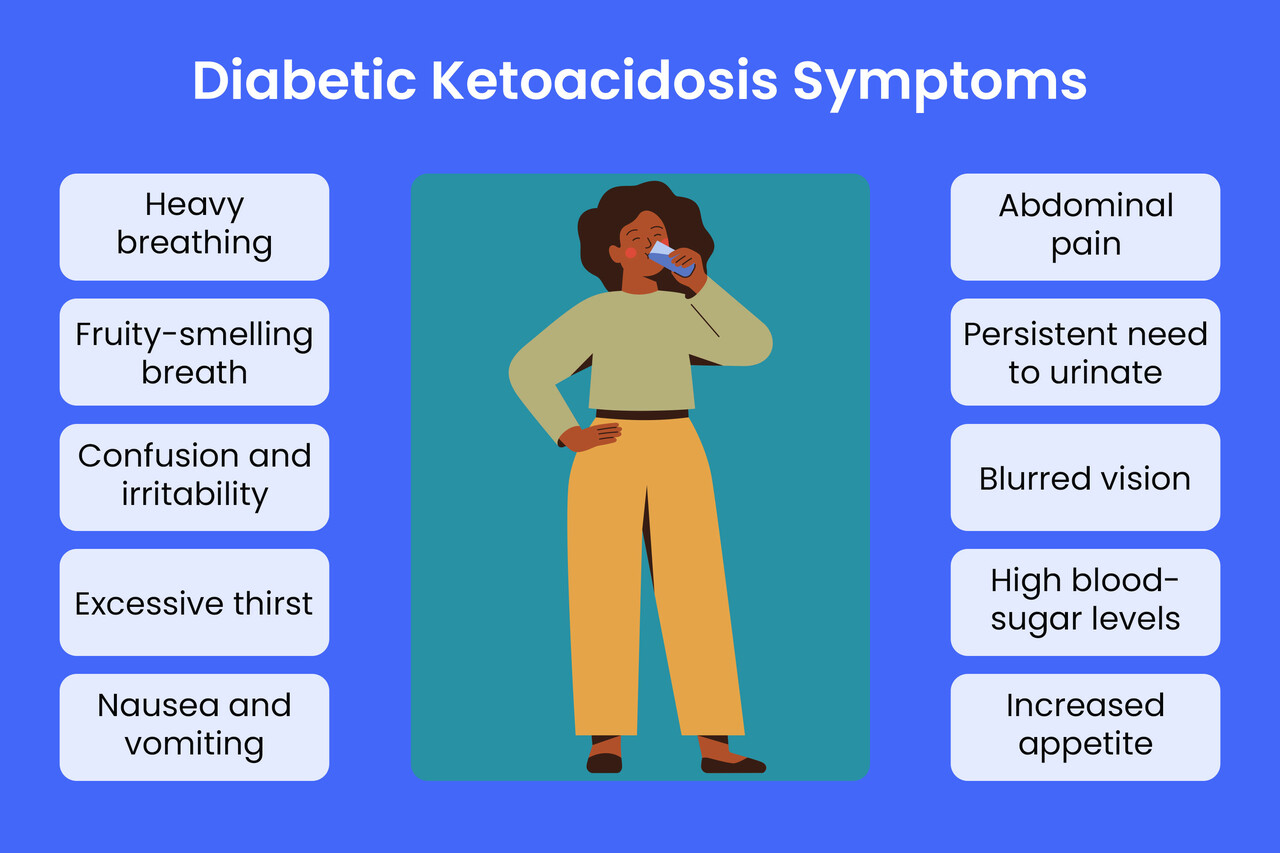I thought my husband just needed a shower.
It started gradually. He came home from work with a scent I couldn’t quite describe — not the usual post-gym sweat or day-old clothes. It was sharper. Almost sweet. Sometimes like overripe fruit. Sometimes like acetone. At first, I joked that he needed a new deodorant. Then, I noticed it didn’t go away… even after he showered.
Eventually, I made a doctor’s appointment. Just a routine check, I thought — maybe something to do with his diet. I went with him for support.
He went into the office alone. Five minutes later, the doctor came out and said, “You should come in too.”
That’s when we learned something we never expected: My husband had Type 2 diabetes, and his blood sugar levels were dangerously high. The strange smell I noticed? It was a sign of a serious condition called diabetic ketoacidosis (DKA).
What Is That “Sweet Smell”? A Lesser-Known Sign of Diabetes
Most people associate diabetes with fatigue, increased thirst, or frequent urination. But few know that it can also change how someone smells — particularly their breath and body odor.
When the body lacks enough insulin to convert sugar (glucose) into energy, it begins breaking down fat for fuel. This process produces ketones, a type of acid that can build up in the blood and leak into the breath and sweat.
The result? A person may smell:
- Like fruity candyorfermented apples
- Or like nail polish remover(due to a specific ketone: acetone)
This is especially common in diabetic ketoacidosis (DKA), a medical emergency that happens when ketone levels become dangerously high.

What Is Diabetic Ketoacidosis (DKA)?
DKA is a serious complication of diabetes — most commonly seen in Type 1 diabetes, but also in undiagnosed or poorly managed Type 2 diabetes.
Symptoms of DKA include:
- Nausea and vomiting
- Abdominal pain
- Excessive thirst and urination
- Fatigue or confusion
- Breath that smells fruity or like acetone
- Rapid breathing or shortness of breath
If untreated, DKA can lead to coma or even death. That’s why early detection is crucial.

How Common Is Undiagnosed Diabetes in the U.S.?
According to the U.S. Centers for Disease Control and Prevention (CDC) source:
- Over 38 million Americanshave diabetes — about 11.6% of the population.
- Of those, nearly 1 in 5 don’t know they have it.
- Another 98 million U.S. adultshave prediabetes — and over 80% are unaware.
Diabetes is a slow, silent disease. Many people don’t realize anything is wrong until symptoms like unexplained weight loss, fatigue, or unusual body odor appear.

Why Does Diabetes Affect Body Odor?
There are a few reasons why people with diabetes may develop noticeable changes in smell:
1. Ketone Production
- As mentioned, the body creates ketones when it burns fat.
- High levels of ketones can cause the breath to smell sweet or fruity — especially during fasting, prolonged exercise, or poor glucose control.
2. High Blood Sugar and Bacterial Growth
- Elevated blood sugar can cause excessive sweating and encourage bacterial or yeast overgrowth, especially in skin folds (e.g., groin, underarms).
- This can lead to musty, sour, or vinegarysmells.
3. Kidney or Liver Dysfunction
- Advanced diabetes can damage the kidneysandliver, affecting how the body filters toxins.
- This may result in smells similar to ammonia, metal, or urineon the skin or breath.
How We Managed It: From Smell to Self-Care

After the diagnosis, my husband’s doctor ordered an A1C test — a blood test that measures average glucose levels over the past 3 months. His result? 10.2% — well above the normal range (below 5.7%).
The first few weeks were hard. Changing diet, starting medication, and getting his blood sugar under control wasn’t easy. But as we made adjustments, the strange body odor disappeared — along with his fatigue and brain fog.
Now, we look back on that “weird smell” moment with gratitude. It was the signal that saved his health — and possibly his life.
When Should You See a Doctor?
You should schedule a medical evaluation if you or a loved one experiences:
- Persistent sweet or fruity-smelling breath
- Sudden changes in body odor
- Unexplained fatigue, weight loss, or excessive thirst
- Frequent urination or blurred vision
- Nausea or confusion (especially if paired with unusual smells)
Early diagnosis of diabetes can prevent serious complications like nerve damage, heart disease, kidney failure, and DKA.
Can You Prevent or Reverse Type 2 Diabetes?
Yes — early lifestyle changes can make a massive difference. Even people with prediabetes or early-stage diabetes can delay or reverse progression by:
- Losing just 5–7% of body weight
- Exercising at least 150 minutes per week
- Eating a low-glycemic, high-fiber diet
- Avoiding processed sugar and refined carbs
- Getting regular health checkups
The CDC offers a National Diabetes Prevention Program with resources, coaching, and support for at-risk individuals source.

Final Thoughts
It’s easy to overlook odd changes in someone’s body — especially something like smell. But in our case, that “funny odor” was more than an inconvenience. It was a symptom of an undiagnosed chronic condition.
If you notice unusual body odors in yourself or someone close, don’t jump to conclusions — but don’t ignore it either. It could be your body’s way of asking for help.
Sometimes, paying attention to the little things can save a life.
Sources and Further Reading:
- CDC: The Surprising Truth About Prediabetes
- CDC: Diabetes Statistics Report, 2023
- Mayo Clinic: Diabetic Ketoacidosis
- American Diabetes Association: Ketones
- NIH: Body Odor and Medical Conditions
- Harvard Health: Signs You May Have Diabetes